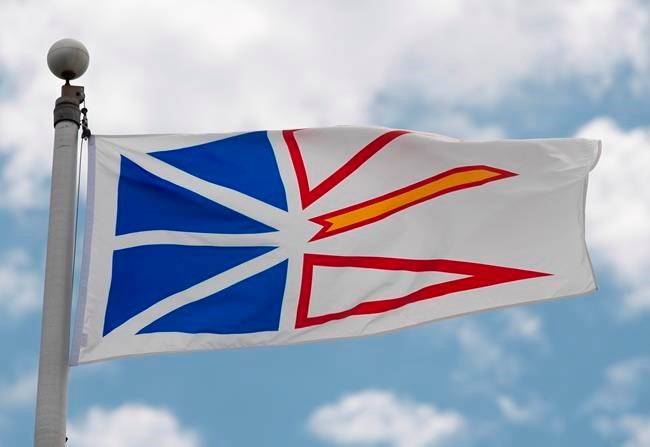ST. JOHN'S, N.L. — Lawyers contesting Newfoundland and Labrador's travel ban say the policy is arbitrary and violates mobility rights guaranteed in the charter.
Closing arguments were heard Tuesday in provincial Supreme Court in a challenge of restrictions imposed last spring to limit the spread of COVID-19.
The Canadian Civil Liberties Association and Halifax resident Kim Taylor allege the measures restricting entry to residents and essential workers violate the Charter of Rights and Freedoms and fall outside the province's jurisdiction.
Taylor's lawyer, John Drover, told the St. John's courtroom Tuesday that Newfoundland and Labrador is the first province to shut its borders to other Canadians, adding that a closer analysis is needed of mobility rights in Canada.
He said the policy goes against the Constitution Act and the charter.
"We have put up, basically, international borders without the right to do so," Drover said. "We live in weird times, no question, but this is way over the top."
The Canadian Charter of Rights and Freedoms states every citizen has the right to enter, remain in and leave the country, and has the right to move to, and take up residence in, any province.
Justice Donald Burrage mulled from the bench that the drafters of the charter could have included more specific wording guaranteeing entry into another province for reasons other than moving or working there.
But Drover argued the mobility rights would have been considered self-evident.
"I don't think any Canadian, or any politician, any lawyer or any judge has ever put to their mind that you could restrict Canadians from travelling around in Canada," Drover said.
Justin Mellor, a lawyer for the province, said Tuesday Newfoundland and Labrador has constitutional authority to enact the policy because the ban addresses an issue of public health, placing it "squarely within provincial jurisdiction."
He also argued the ban does not violate any mobility rights because the text of the charter does not explicitly address interprovincial mobility.
Burrage questioned Mellor on whether the ban threatens confederation.
"If you allow provinces to close their borders to each other, we don't have Canada, or at least some would say we don't," the judge said.
Mellor replied that the option to request an exemption to the ban makes the policy "constitutionally sound."
Rosellen Sullivan, representing the civil liberties group, argued the ban is arbitrary because more than 13,000 exemptions have already been granted, undermining its public health goals. "There's nothing in the exemption criteria that is related to the purpose," Sullivan said Tuesday.
She argued Taylor had a "rock-solid" isolation plan yet was still refused entry. Taylor had asked to travel to Newfoundland after her mother's death but was denied. The decision was reversed, and Taylor was later allowed into the province, but she has said the decision came too late to allow her to grieve properly and comfort her father.
Taylor and the civil liberties group filed their challenge in May. She is not seeking monetary damages in the claim but says she wants to spare others from having the same experience.
Sullivan also argued the ban is not necessary to minimize serious illness or death, contrary to what the chief medical officer of health claimed in her affidavit prepared for the case. Almost 80 per cent of the province's COVID-19 cases were recovered when the ban was announced on April 29, Sullivan noted.
Chief medical officer Dr. Janice Fitzgerald, who ordered the ban, testified last week that her policy was effective when paired with other measures, such as physical distancing. The province currently has two active cases of COVID-19. Three people have died from the virus and 263 people have recovered.
Many restrictions on activities and businesses have been lifted and the province began allowing residents of other Atlantic provinces to visit in July. The rest of Canada, however, is still subject to the travel ban.
Last week, the court heard from Dr. Proton Rahman, an epidemiologist modelling scenarios on the contagion's spread within the province. He prepared two models for the court, which indicated the rate of infection could have been 20 times higher without the travel ban.
Rahman also discussed a study he co-authored with researchers at Oxford and Stanford universities that concluded the travel restrictions were politically contentious but clearly effective at controlling cases.
Mellor pointed to the testimony of Rahman and Fitzgerald, and mentioned other factors putting Newfoundlanders and Labradorians at high risk from COVID-19 to justify his argument that the ban was needed to protect the vulnerable. The province has the highest proportion of seniors in the country and high rates of cancer, obesity and smoking, he said.
Mellor also brought up the province's strained health-care system, including its limited number of acute care beds, to argue authorities needed a cautious approach to managing the pandemic. "It would not take much to break our health-care system," he said.
Arguments are expected to conclude Wednesday.
This report by The Canadian Press was first published Aug. 11, 2020.
Holly McKenzie-Sutter, The Canadian Press




